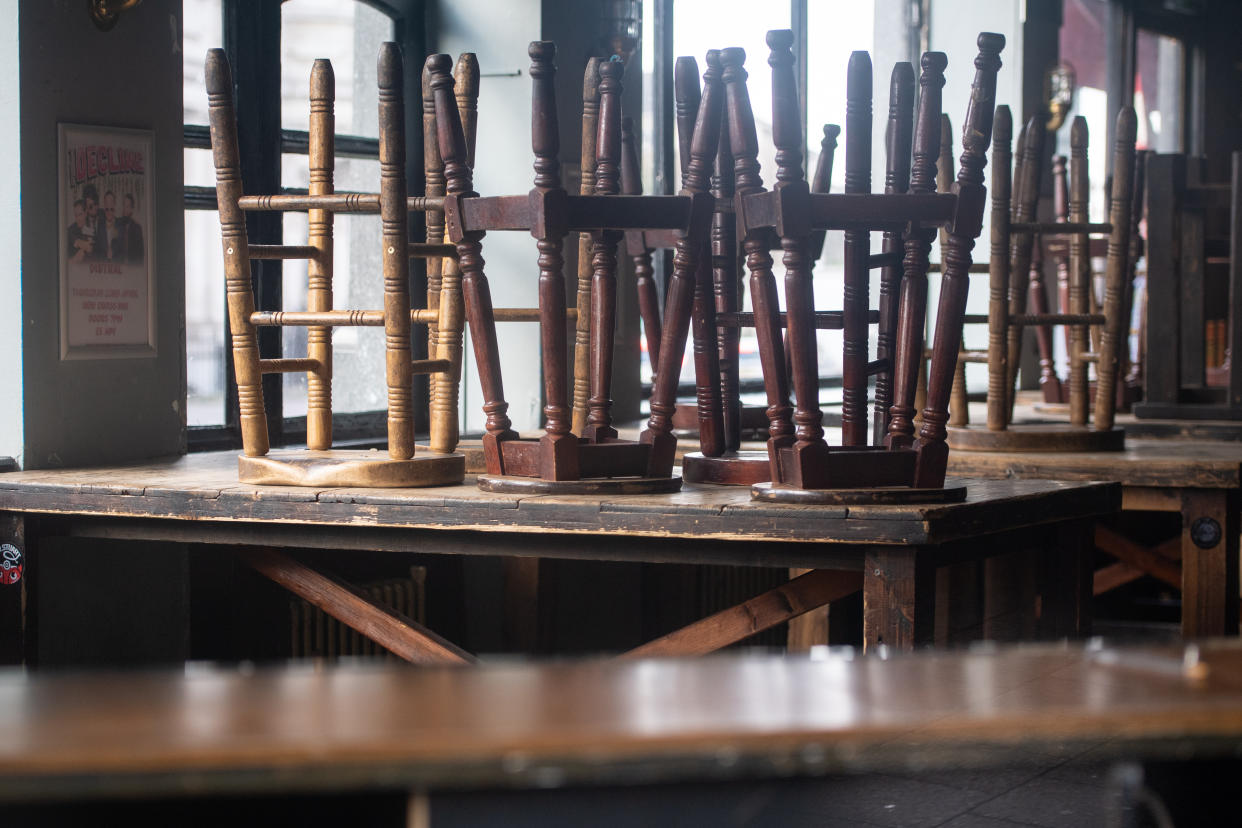England's bars and cafes 'in intensive care' as lockdown hits pre-Christmas trade

Bars, restaurants, pubs, cafes and hotels have been left in “intensive care” by England’s coronavirus lockdown restrictions, according to business leaders.
Leading voices in hospitality, retail and small business warned the government on Tuesday that tougher restrictions to curb a second wave were putting more firms and jobs at risk.
The government is under pressure not to extend England’s lockdown further into December despite its struggles to contain the virus, with industry figures emphasis how vital pre-Christmas trade is for firms. There are also calls for more support for shut-down firms and their suppliers, and warnings that online delivery supply chains risk being overwhelmed by soaring demand.
MPs on the business, energy, and industrial strategy (BEIS) select committee heard evidence from business groups about the impact of England’s lockdown on Tuesday.
Kate Nicholls, chief executive of hospitality trade body UKHospitality, said her sector had never even fully re-opened over the summer, given social distancing, group size, household mixing and other regional and national restrictions.
“We never got above break-even, before we had a return to national restrictions in September,” she told MPs.
Watch: What is the job support scheme and how has it changed?
READ MORE: Insurers accuse small firms of trying to ‘reverse-engineer’ COVID cover
She said tighter measures had progressively knocked larger holes in firms’ revenues, with income currently down around 66%, according to UKHospitality figures.
The trade body expects firms to burn through around £0.5bn ($0.66bn) of cash in November because of England’s lockdown, which forced hospitality firms to shut or become takeaway-only.
“Our businesses going into this second lockdown are in a far less resilient place than they were in the first lockdown. They’ve got depleted capital reserves, and are going through a terrific accoumt of cash burn while they’re closed,” she said.
She warned 660,000 jobs have already been lost this year, and faced missing out on trade during “what should have been our golden quarter” at the end of the year. Some 40% of annual revenues are earned on average between Halloween and New Year’s Eve, she said.
“You can see that hospitality has gone from a pretty precarious position at the end of Q3 to back into intensive care in Q4 as we come through this.”
READ MORE: UK consumer spending slowed even before latest lockdowns
Helen Dickinson, chief executive of the British Retail Consortium (BRC), also appeared before MPs, telling the committee the impact of lockdown had been “severe” so far.
“We have some parts of retail that have done better, but for many retail businesses, survival is now being threatened because of the timing of this second lockdown. It’s the most crucial trading period of the year, the run-up to Christmas. We estimate that store sales of about £2bn per week will be lost during the month of the English lockdown.
She added: “Online and logistics is already close to capacity so it won’t be able to take up much of the slack in the same way it has done throughout the rest of the year.”
Click-and-collect and online orders were only “part of a solution” for the sector, she added, and urged clarity on re-opening. “The planning assumption of every retail business is that they are able to reopen on 3 December.”
Meanwhile Mike Cherry, national chairman of the Federation of Small Businesses (FSB), highlighted the impact of closures on retail, hospitality and other supply chains. “Those businesses have not had the same support as the frontline retailers or pubs have, they have not had the business rate relief, they have not had the grants.”
Cherry warned cash burn had been “absolutely huge” for small firms. Some firms were having to “take on more debt they probably can’t afford to repay in the short-term.”
He noted official figures showing a declining self-employed workforce, and said additional support and advance notice of measures were vital for them and for small firms. “We haven’t seen commensurate forward planning for those businesses as announcements are made,” he told MPs.
Housing secretary Robert Jenrick said a decision would be made at the end of the month on England’s lockdown, but warned returning to regional restrictions would depend on data on the virus’ spread.
More than 52,000 people have now died from COVID-19 in the UK, with infection rates still high as 21,363 new cases were confirmed on Monday.
Watch: What is a recession?

 Yahoo Movies
Yahoo Movies 
